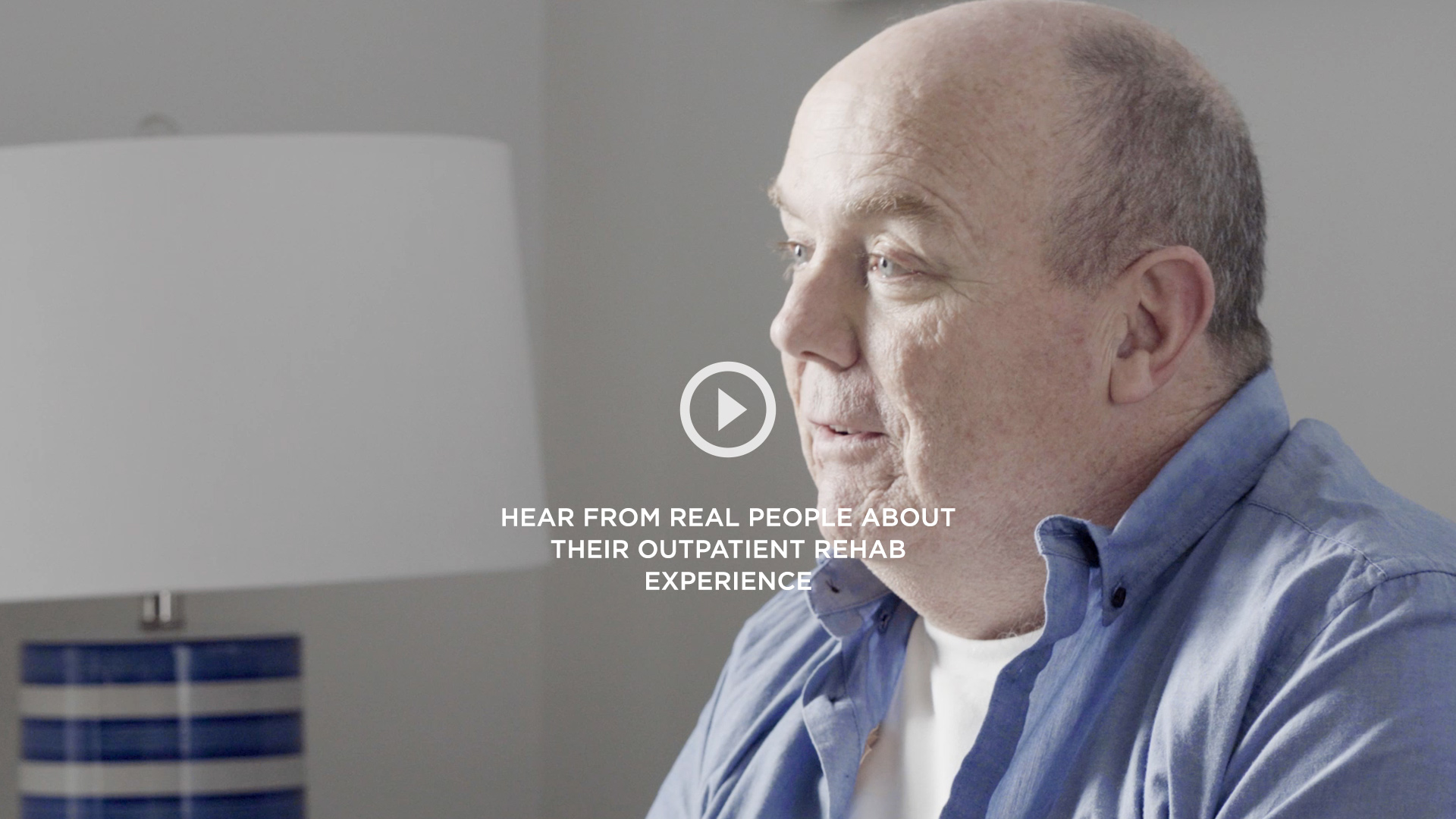Menu
Look
Visual things to pay attention to during your loved one’s outpatient rehab time
- Keep an eye on your loved one’s progress to see if they are making continued improvement
- Ensure your loved one is actively engaged in home exercises and taking their medications as directed
- Observe therapy sessions to determine which activities/exercises can also be done at home
- Continue monitoring your loved one for signs of another stroke (face drooping, muscle weakness, slurred speech/confusion)
listen
Details to make note of during your loved one’s outpatient rehab time
- Make note of the therapists’ ideas for rebuilding strength, improving mobility, and regaining function
- Find out how comfortable your loved one feels about getting around, such as driving or other forms of transportation, and address as needed
- Lend an ear to insights the therapists share about monitoring your loved one for post-stroke pain and spasticity (muscle stiffness/tightness)
- Pay close attention to discussions about orthotics/braces and assistive devices so you can help your loved one use them properly
“
I’D BE IN THE WAITING ROOM WITH PEOPLE THAT HAD CHILDREN, BROTHERS, SISTERS, HUSBANDS, DEALING WITH A SIMILAR SITUATION. SO, I’D GET TALKING TO THEM AND IT JUST FELT GOOD TO TALK TO SOMEONE.”
–JIM, CAREGIVER
ASK
Conversations to have with therapists during your loved one’s outpatient rehab time
- Talk about the number of visits and services your loved one may need
- Request a customized home exercise program—this will help keep you on track
- Discuss any home safety issues you or your loved one may have
- Initiate conversations about ways to address and manage any spasticity
Do
Tasks to complete during your loved one’s outpatient rehab time
- Contact your loved one’s insurance provider to better understand outpatient rehab benefits and coverage
- Form an action plan to continue therapy exercises and activities at home, once outpatient rehab ends
- Write down any questions or concerns you have about your loved one’s outpatient rehab therapy and bring them to each session
- Consult your calendar daily to ensure all appointments, errands, and scheduled exercises are accounted for
Caution
Talk to your loved one’s doctor if you notice any of these signs and symptoms:
- Limited or restricted movements, which may be caused by muscle tightness (spasticity)
- Pain, redness, and swelling in the arms and legs, which may be the result of a blood clot
- Exhaustion, which may be a sign that your loved one is overdoing it
CAREGIVER
MATTERS
Outpatient rehab may wear on you, so use this time to help yourself be a strong caregiver:
- BE OPEN Consider new technologies that may help make your job as a caregiver easier
- GET AHEAD Organize and update medical information and legal documents
- REACH OUT If you haven’t already, join an in-person support group or online discussion forum to connect with other caregivers
- FIND INSPIRATION Visit caregiver organization websites to access advice and testimonials from others in your shoes
- TAKE CARE Keep an eye on your own mental health and seek help when you need it









